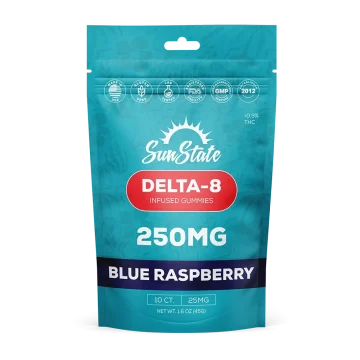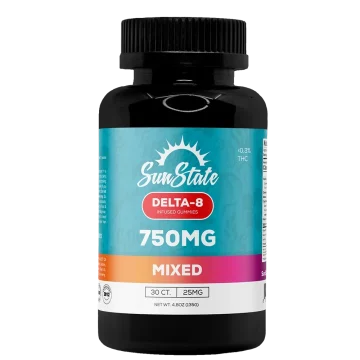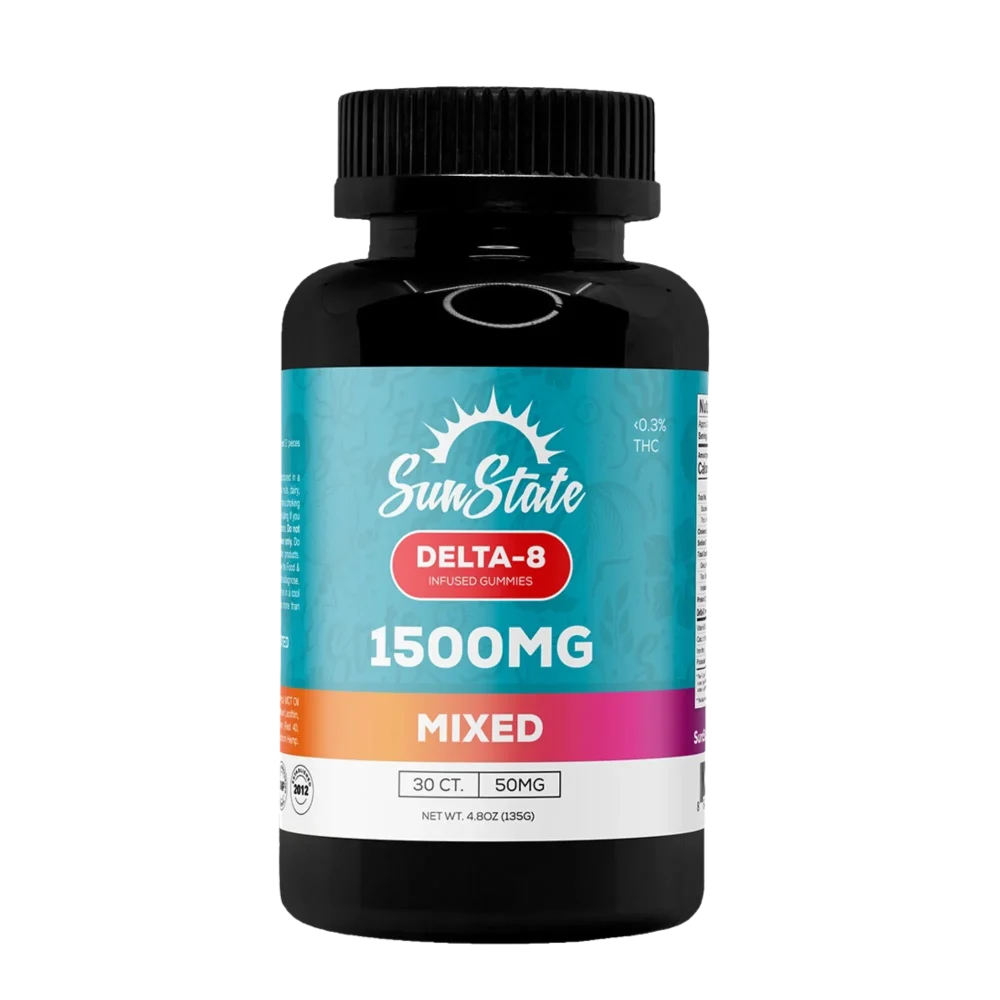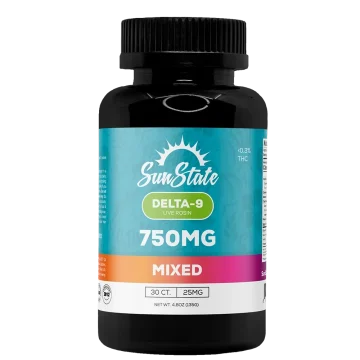Delta 8 Gummies
Showing all 5 results
-

Delta 8 Infused Gummy Grab N’ Go Bag 10ct 250mg
$19.99 — or subscribe and save 15% Select options This product has multiple variants. The options may be chosen on the product page -

Delta 8 Infused Gummy Grab N’ Go Bag 10ct 500mg
$24.99 — or subscribe and save 15% Select options This product has multiple variants. The options may be chosen on the product page -

Delta 8 Infused Gummy 30ct 750mg
$29.99 — or subscribe and save 15% Select options This product has multiple variants. The options may be chosen on the product page -

Delta 8 Infused Gummy 30ct 1500mg
$39.99 — or subscribe and save 15% Select options This product has multiple variants. The options may be chosen on the product page -

Delta 8 Infused 25mg Gummy Mixed 60ct 1500mg
$44.99 — or subscribe and save 15% Add to cart
Frequently purchased together
Delta 8 Gummies – A Delicious, Balanced Way to Enjoy Hemp-Derived THC
What Are D-8 Gummies?
Understanding the Role of Delta 8 Gummies
Delta 8 gummies are infused with Delta-8-tetrahydrocannabinol (Delta-8 or Δ8-THC), a hemp-derived cannabinoid known for its smoother, more moderate effects compared to traditional Delta-9 THC. These gummies are popular among wellness-minded users seeking a calm, uplifting experience without the stronger intensity associated with Delta-9.
How Do Delta 8 Gummies Work?
The Interaction with Your Endocannabinoid System
Delta-8 interacts with the body’s endocannabinoid system (ECS), particularly CB1 receptors in the brain. This connection may contribute to relaxation, mental clarity, and mood support, offering an approachable alternative for those looking to explore hemp-derived THC.
Unlike CBD, which is non-psychoactive, Delta 8 provides a light, enjoyable effect that many find less overwhelming than other cannabinoids.
Why Choose Delta 8 Gummies?
Benefits of the Edible Format
- Discreet and Portable: Perfect for on-the-go use with no preparation needed.
- Extended Effects: Edibles tend to offer a longer-lasting experience due to digestive absorption.
- Pre-Measured Serving: Each gummy contains a precise amount of Delta-8 for consistent dosing.
- Flavorful Choices: Available in a variety of great-tasting flavors to suit any palate.
How Are D-8 Gummies Made?
From Hemp to Gummy
Delta-8 is created from hemp-derived CBD through a legal conversion process called isomerization. The compound is then refined and infused into carefully formulated gummies, ensuring quality and consistency in every bite.
Are D-8 Gummies Legal?
Know the Regulations
Under the 2018 Farm Bill, Delta-8 THC products derived from hemp are federally legal if they contain less than 0.3% Delta-9 THC. However, regulations differ by state—be sure to check your local laws before purchasing.
All products should be federally compliant and third-party tested to ensure safety and potency.
Everyday Uses of Delta 8 Gummies
Why Many Choose D-8 Edibles
Delta-8 gummies may complement wellness routines in areas such as:
- Calm and Relaxation: May help support a more centered, relaxed state.
- Clarity and Balance: Some users describe a light, focused feeling.
- Evening Wind-Down: Often used as part of a calming evening routine.
- Mindful Eating: May support appetite and enjoyment of meals.
Note: These statements have not been evaluated by the FDA. Products are not intended to diagnose, treat, cure, or prevent any disease.
How to Use D-8 Gummies Safely
Guidelines for First-Time Users
- Start Low: Begin with half a gummy and monitor your response.
- Be Patient: Effects may take 30–90 minutes to set in.
- Know Your Limits: Avoid overconsumption, especially if new to Delta-8.
Exploring the Delta 8 Gummy Market
Trends and Innovation
The Delta-8 gummy market continues to grow rapidly, with more consumers seeking lab-tested, high-quality formulations. As interest expands, expect new flavors, strengths, and functional ingredients to emerge and shape the future of this product category.
The Future of Delta-8 Gummies
Where the Industry is Headed
With ongoing interest in cannabinoid-based wellness products, Delta-8 gummies are poised to remain a key option. Regulatory updates and consumer feedback will continue to guide how these products evolve.
Are D-8 Gummies Right for You?
Making the Smart Choice
If you’re seeking a flavorful, approachable way to enjoy hemp-derived THC, Delta-8 gummies are a great choice. Whether they’re part of your evening routine or daily balance, they offer a convenient and enjoyable experience.
Explore high-quality Delta-8 gummies today—crafted for consistency, flavor, and your peace of mind.




